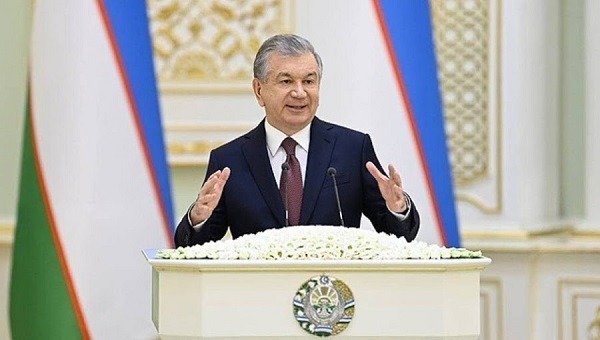Pioneering Economic Evolution: President Uzbekistan Shavkat Mirziyoyev’s re-election heralded the unveiling of “Strategy 2030,” a blueprint aimed at reshaping Uzbekistan’s economic landscape. The focal point? Doubling GDP by 2030, propelling the nation into the league of above-average income countries through an aggressive annual growth target of 6-7% while curbing inflation.
Economic Diversification and Foreign Investment: Central to this vision is a strategic shift reducing state control in 17 sectors, opening doors for private enterprise to flourish, and initiating “people’s IPOs” for state-owned companies. Attracting $110 billion in foreign investment by 2030, particularly in automotive and green energy projects, forms the cornerstone of this economic makeover.
Harnessing Resources for Value Addition: Uzbekistan’s natural resources, including copper, gold, and uranium, are earmarked for enhanced utilization. The plan aims to propel value-added industries, revamping sectors like natural gas processing, iron smelting, and textile exports while upgrading agricultural practices for sustainability.
Societal Empowerment through Education and Healthcare: Strategy 2030 doesn’t just focus on economic growth; it champions societal upliftment. Plans to address rapid population growth include constructing schools and daycare centers while forging partnerships to enhance education quality and bolster healthcare services, targeting the reduction of mortality rates from critical diseases.
Youth Empowerment and Educational Revolution: Recognizing the pivotal role of the youth, “New Uzbek School” emerges as a groundbreaking initiative. It focuses on instilling practical skills and critical thinking through STEM integration and innovative teaching methodologies, while investing heavily in teacher training, aligning with the belief that educators shape the nation’s destiny.
Fostering Creativity, Entrepreneurship, and Cultural Heritage: Beyond education, the strategy actively nurtures artistic talent, expanding libraries, supporting cinema, and promoting the arts. Uzbekistan aims to cultivate a culture of creativity, providing platforms for young artists and storytellers to showcase their talents while preserving and sharing the nation’s rich cultural heritage.
Strategic Infrastructure and Global Engagement: Uzbekistan’s infrastructural advancements stand as key pillars for economic and social progress. Plans for railway electrification, road construction, and bolstered logistics emphasize the nation’s pivotal role as a regional hub. Simultaneously, a focus on tourism infrastructure intends to draw more visitors, promoting economic growth and cultural exchange.
Transparency, Governance, and Modernization: Rooted in the strategy is a commitment to combat corruption and modernize governance. Elevating Uzbekistan’s global standing in Transparency International’s Corruption Perception Index and striving for higher rankings in the United Nations’ e-Government Rankings underscore this commitment to transparency, accountability, and efficiency.
President Shavkat Mirziyoyev’s Strategy 2030 isn’t merely an economic vision; it’s a comprehensive roadmap for societal progress, environmental stewardship, and international cooperation, marking Uzbekistan’s ambitious stride towards a promising future.


